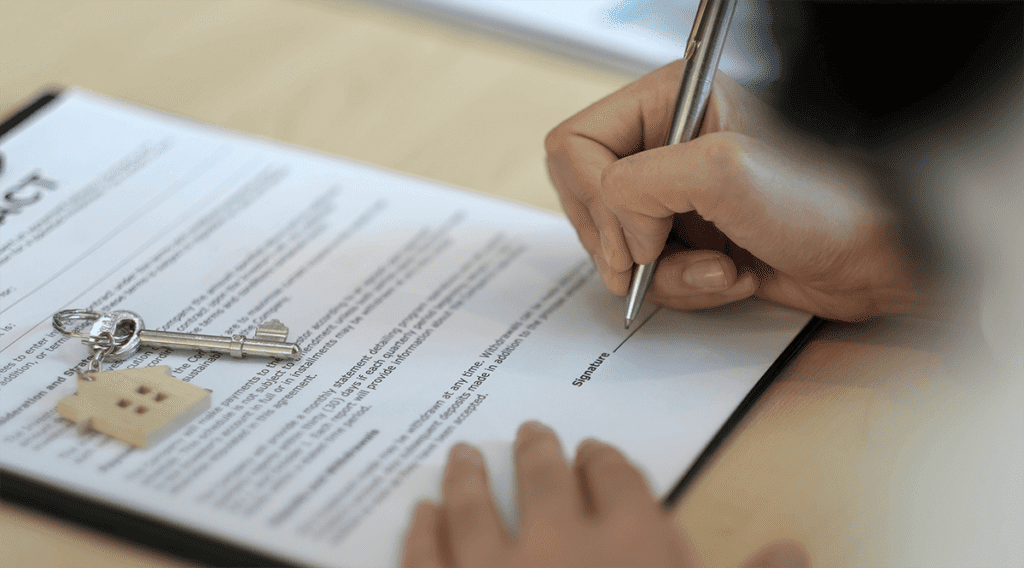Renewing a lease is one of the most critical aspects of property management. A successful renewal process allows landlords to retain quality tenants, minimize costly turnovers, and secure consistent rental income. However, in California—where rental laws are both complex and tenant-focused—landlords must balance legal compliance with tenant satisfaction.
This guide walks you through the essential steps for managing rental lease renewals, negotiating effectively, and fostering positive tenant relationships. Whether you’re a seasoned property owner or a new landlord, these tips will help you navigate the process with confidence and ease.
- Why Lease Renewals Matter
Lease renewals aren’t just about keeping tenants in place—they’re about building trust and creating a stable, long-term rental strategy. Retaining tenants saves money on marketing, turnover costs, and time spent screening new applicants. Additionally, lease renewals provide an opportunity to reassess rental terms, adjust rent to reflect market conditions, and address any changes in property management policies.
- Quick Fact: The average cost of tenant turnover is 1.5 to 2 times the monthly rent. Minimizing turnover through successful renewals is a smart financial move.
- Start the Process Early
Proactivity is key to a smooth renewal process. Start communicating with tenants at least 90 days before their lease expires. Early outreach gives both parties ample time to review the lease terms, address concerns, and make decisions.
What to Include in Your Renewal Notice:
- The proposed new lease term (e.g., 12 months, month-to-month).
- Any changes to rental terms, such as rent increases or updated policies.
- A deadline for the tenant to respond with their decision.
Tip: Make your renewal notice friendly and approachable. Express your appreciation for the tenant’s residency and invite them to reach out with questions.
- Evaluate Market Conditions
To set a fair and competitive rent for the renewed lease, conduct a thorough analysis of the local rental market. Research comparable properties in your area to understand current trends.
Factors to Consider:
- Average rent for similar properties in your neighborhood.
- Recent property upgrades or improvements.
- Market demand and vacancy rates in your area.
Tip: If you plan to increase rent, explain the rationale to your tenants. Transparency about factors like rising maintenance costs or market trends helps build trust.
- Review and Update Lease Terms
Lease renewals are the perfect opportunity to revisit and refine your lease agreement. Over the past year, you may have noticed areas where the lease terms could be clearer or more effective.
Common Updates to Consider:
- Pet Policies: Adjust rules based on tenant feedback or property needs.
- Maintenance Responsibilities: Clarify tenant vs. landlord responsibilities.
- Parking or Storage Terms: Address any changes in shared spaces or availability.
- Rules for Subletting: Update policies to reflect local regulations or property concerns.
Tip: Communicate any changes clearly in your renewal proposal, and be open to discussing them with your tenants.
- Offer Renewal Incentives
Retention strategies can make a significant difference in whether tenants decide to renew their lease. Even small incentives can tip the scale in your favor.
Incentive Ideas for Long-Term Renewals:
- A one-time rent discount for signing a 12- or 24-month lease.
- Upgrades such as fresh paint, new appliances, or improved landscaping.
- Flexible lease terms, such as an option to terminate early with advance notice.
Quick Fact: Tenants who feel valued are more likely to renew, even with a modest rent increase.
- Approach Negotiations Collaboratively
Negotiations are often the most delicate part of the renewal process. Rather than adopting a rigid stance, aim to create a collaborative environment. Listen to your tenants’ concerns and work toward solutions that benefit both parties.
Examples of Common Negotiation Topics:
- Rent increase limits or phased increases over time.
- Requests for minor property repairs or upgrades.
- Flexible lease terms, such as shorter lease periods or early termination options.
Tip: Demonstrate a willingness to compromise. Tenants are more likely to renew if they feel heard and respected.
- Comply with California Rental Laws
California has some of the most tenant-friendly rental laws in the country. To avoid legal complications, ensure your lease renewal process complies with all applicable regulations.
Key Legal Considerations:
- Notice Requirements: California Civil Code requires landlords to provide written notice of rent increases 30 to 60 days in advance, depending on the percentage increase.
- Security Deposits: Ensure you’re following state guidelines for handling deposits during renewals.
- Rent Control: Be aware of local rent control ordinances that may limit your ability to increase rent.
Tip: Stay updated on changes to California rental laws by consulting a property management professional or legal expert.
- Create a Plan for Non-Renewals
Not all tenants will choose to renew their lease, and that’s okay. Having a plan in place for non-renewals can help you transition smoothly.
Steps for Handling Non-Renewals:
- Send a Non-Renewal Acknowledgment: Confirm the tenant’s decision in writing and provide details about the move-out process.
- Conduct a Pre-Move-Out Inspection: Identify any necessary repairs or cleaning tasks.
- Plan for Turnover Maintenance: Schedule time for repainting, cleaning, and repairs before marketing the property to new tenants.
Tip: Offer departing tenants an exit survey to gather feedback and improve your rental process.
- Leverage Professional Support
If managing lease renewals feels overwhelming, consider partnering with a property management company. Professional property managers handle everything from market analysis to tenant communication, saving you time and effort.
Quick Fact: Property management companies can help reduce vacancy rates by streamlining the renewal and turnover process.
Lease renewals are an essential part of successful property management. By starting early, staying informed about market conditions, and maintaining open communication with tenants, you can minimize turnover, build positive relationships, and protect your rental income.
Need help navigating lease renewals or other property management tasks? Three Palms Property Management is here to support you every step of the way. Contact us today to learn more about our services and how we can make your job easier.

